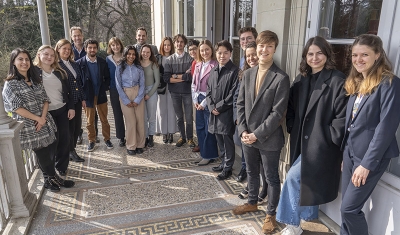Book Launch - The Authority of the International Committee of the Red Cross: Determining What International Humanitarian Law Is
Event


Brill Nijhoff
Despite being a non-governmental organization, the ICRC has a significant impact on the development of international humanitarian law. The ICRC's interpretations and law-ascertainments play a particularly important role in this regard.
In his book, The Authority of the International Committee of the Red Cross: Determining What International Humanitarian Law Is, Linus Mührel conducts the first ever comprehensive study of the ICRC’s interpretations and law-ascertainments. He analyses in detail their impact on the development of international humanitarian law and international law in general as well as the reasons for their impact. This analysis involves the discussion of the ICRC’s authority. Is it legal or just factual authority? The analysis also illuminates the direction that international humanitarian law – and international law in general – develops. This insight sheds light on the question of the current type of international law, i.e., what international law is and who makes it.
In his book launch, Linus Mührel will discuss his book’s main findings with experts from academia and the ICRC, including the impact of the ICRC's interpretations and law ascertainments on international humanitarian law and international law in general and the reasons for their varying degrees of success. Interested participants are warmly invited to join the discussion.
Linus Mührel is a criminal defense lawyer at Danckert Bärlein & Partner and lecturer at Technische Universiät Dresden. He received his doctorate from Freie Universität Berlin in 2022 and has published books and articles on public international law, especially international humanitarian law and human rights law. The book is published by Brill Nijhoff.
Panel
- Linus Mührel, criminal defense lawyer at Danckert Bärlein & Partner and lecturer at Technische Universität Dresden
- Ellen Policinski, ICRC Legal Adviser
- Marco Sassòli, Professor of International Law, University of Geneva
- Fuad Zarbiyev, Professor of International Law, Geneva Graduate Institute








